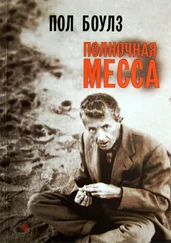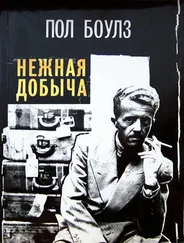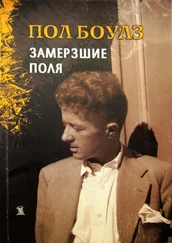Пол Боулз - Let it come down
Здесь есть возможность читать онлайн «Пол Боулз - Let it come down» весь текст электронной книги совершенно бесплатно (целиком полную версию без сокращений). В некоторых случаях можно слушать аудио, скачать через торрент в формате fb2 и присутствует краткое содержание. ISBN: , Жанр: Современная проза, на английском языке. Описание произведения, (предисловие) а так же отзывы посетителей доступны на портале библиотеки ЛибКат.
- Название:Let it come down
- Автор:
- Жанр:
- Год:неизвестен
- ISBN:1-931082-19-7
- Рейтинг книги:5 / 5. Голосов: 1
-
Избранное:Добавить в избранное
- Отзывы:
-
Ваша оценка:
- 100
- 1
- 2
- 3
- 4
- 5
Let it come down: краткое содержание, описание и аннотация
Предлагаем к чтению аннотацию, описание, краткое содержание или предисловие (зависит от того, что написал сам автор книги «Let it come down»). Если вы не нашли необходимую информацию о книге — напишите в комментариях, мы постараемся отыскать её.
Let it come down — читать онлайн бесплатно полную книгу (весь текст) целиком
Ниже представлен текст книги, разбитый по страницам. Система сохранения места последней прочитанной страницы, позволяет с удобством читать онлайн бесплатно книгу «Let it come down», без необходимости каждый раз заново искать на чём Вы остановились. Поставьте закладку, и сможете в любой момент перейти на страницу, на которой закончили чтение.
Интервал:
Закладка:
Eunice Goode had her own maid whom she paid by the day — a slovenly Spanish girl who came in at noon and did extra work the hotel servants could not be expected to do, such as keeping her clothes pressed and in order, running errands, and cleaning the bathroom daily. The girl had been full of news of the volcano that morning and had chattered on about it, much to her annoyance, for she had decided she was in a working mood. « Silencio !» she had finally cried; she had a thin, high voice which was quite incongruous with her robust appearance. The girl stared at her and then giggled. «I’m working,» Eunice explained, looking as preoccupied as she could. The girl giggled again.
«Anyway,» she went on, «this bad weather is simply the little winter arriving». «They say it’s the volcano,» the girl insisted. There was the little winter first, thus termed only because it was shorter, and then the big winter, the long rainy season which came two months or so afterward. They both made dim days, wet feet and boredom; those who could escaped southward, but Eunice disliked movement of any kind. Now that she was in contact with what she called the inner reality, she scarcely minded whether the sun shone or not.
The girl was in the bathroom scrubbing the floor; she sang shrilly as she pushed the wet rag back and forth on the tiles. «Jesus!» moaned Eunice after a moment. «Conchita,» she called. « Mande ,» said the girl. «I want you to go and buy a lot of flowers in the market. Immediately». She gave her a hundred pesetas and sent her out in order to have solitude for a half-hour. She did not go out much herself these days; she spent most of her time lying in her bed. It was wide and the room was spacious. From her fortress of pillows she could see the activity of the small boats in the inner port, and she found it just enough of a diversion to follow with her eyes when she looked up from her writing. She began her day with gin, continuing with it until she went to sleep at night. When she had first come to Tangier she had drunk less and gone out more. Daytimes she had sunbathed on her balcony; evenings she had gone from bar to bar, mixing her drinks and having eventually to be accompanied to the entrance of her hotel by some disreputable individual who usually tried to take whatever small amount of money was left in the handbag she wore slung over her shoulder. But she never went out carrying more than she minded losing. The sunbathing had been stopped by the hotel management, because one day a Spanish lady had looked (with some difficulty) over the concrete partition that separated her balcony from the adjoining one, and had seen her massive pink body stretched out in a deckchair with nothing to cover it. There had been an unpleasant scene with the manager, who would have put her out if she had not been the most important single source of revenue for the hotel: she had all her meals served in bed and her door was always unlocked so the waiters could get in with drinks and bowls of ice. «It’s just as well,» she said to herself. «Sun is anti-thought. Lawrence was right». And now she found that lying in bed she drank more evenly; when night came she no longer had the urge to rush through the streets, to try to be everywhere at once for fear she would miss what was going to happen. The reason for this of course was that by evening she was too drunk to move very much, but it was a pleasant drunkenness, and it did not stop her from filling the pages of her notebooks with words — sometimes even with ideas.
Volcanoes angered her. The talk about this one put her in mind of a scene from her own childhood. She had been on a boat with her parents, going from Alexandria to Genoa. Early one morning her father had knocked on the door of the cabin where she and her mother slept, calling excitedly for them to go immediately on deck. More asleep than awake they arrived there to find him pointing wildly at Stromboli. The mountain was vomiting flames and lava poured down its flanks, already crimson with the rising sun. Her mother had stared an instant, and then in a voice made hoarse by fury she had cried out one word: «Dis — gust ing!» turned on her heel and taken Eunice below. In retrospect now, although she still could see her father’s crestfallen face, she shared her mother’s indignation.
She lay back, closed her eyes, and thought a bit. Presently she opened them and wrote: «There is something in the silly human mind that responds beautifully to the idea of rarity — especially rarity of conditions capable of producing a given phenomenon. The less likely a thing is to happen, the more wonderful it seems when it does, no matter how useless or even harmful it may be. The fact of its having happened despite the odds makes it a precious event. It had no right to occur, yet it did, and one can only blindly admire the chain of circumstances that caused the impossible to come to pass».
On reading over the paragraph she noted with a certain satisfaction that although it had been meant with reference to the volcano, it also had a distinct bearing upon her personal life at that moment. She was still a little awed by what seemed to her the incredible sequence of coincidences which had made it suddenly possible for her to be happy. A strange thing had happened to her about a fortnight back. She had awakened one bright morning and made a decision to take daily exercise of some kind. (She was constantly making decisions of one sort or another, each of which she was confident was going to revolutionize her life.) The exercise would be mentally stimulating and would help her to reduce. Accordingly she had donned an old pair of slacks which were too small around the waist to be fastened, and set out for the top of the Casbah. She went through the big gate and, using her cane, climbed down the steep path to the long dirty beach below where only Arabs bathed.
From there she had followed the coastline to the west, along the foot of the Casbah’s lower buildings, past the stretch where all the sewers emptied and the stink was like a solid object in the air, to a further rocky beach which was more or less deserted. And here an old Arab fisherman had stopped her, holding forth a small piece of paper, and asked her with great seriousness in his halting Spanish to read him what was written on it.
It said: «Will the finder kindly communicate with C. J. Burnett, Esq., 52, Ashurst Road, North Finchley, London, England. April 12, 1949». She translated the request, indicating the address, and could not restrain herself from asking him where he had got the paper.
«Bottle in water,» he replied, pointing to the small waves that broke near their feet. Then he asked her what he should do. «Write the man, if you like,» she said, about to go on.
Yes, mused the old man, stroking his beard, he must write him, of course. But how, since he couldn’t write? «A friend,» she said. He looked at her searchingly and in a hesitant voice asked her if she would do it. She laughed. «I’m going for a walk,» she said, pointing up the beach away from the town. «Perhaps when I come back». And she started walking again, leaving the old man standing there, holding his bit of paper, staring after her.
She had forgotten the incident by the time she arrived back at the same spot, but there was the fisherman sitting on a rock in his rags, looking anxiously toward her as she approached. «Now you write it?» he said. «But I have no paper,» she objected. This was the beginning of a long episode in which he followed her at a distance of a few paces, all the way back along the shore, up the side hill and through the Casbah from one bacal to another in quest of an envelope and a sheet of paper.
When they had finally found a shopkeeper able to provide them with the two objects, she tried to pay for them, but the old man proudly laid his own coins on the counter and handed hers back to her. By then she thought the whole incident rather fun; it would make an amusing story to tell her friends. But she also felt in need of an immediate drink, and so she refused his invitation to go into a neighboring Arab café for tea, explaining that she must sit in a European café in order to write the letter for him properly. «Do you know one near here?» she asked him; she hoped they would not need to resort to one of the cafés in the Zoco Chico, to reach which they would have to go down steep streets and innumerable steps. He led her along several extremely narrow alleys where the shade was a blessing after the midday sun, to a small dingy place called Bar Lucifer . An extremely fat woman sat behind the counter reading a French movie magazine. Eunice ordered a gin and the old man had a gaseosa. She wrote the letter quickly, in the first person, saying she had found the bottle off Ras el Ihud, near Tangier, and was writing as requested, signing herself Abdelkader ben Saïd ben Mokhtar and giving his address. The fisherman thanked her profusely and went off to post the letter, first having insisted on paying for his gaseosa; she however stayed on and had several more gins.
Читать дальшеИнтервал:
Закладка:
Похожие книги на «Let it come down»
Представляем Вашему вниманию похожие книги на «Let it come down» списком для выбора. Мы отобрали схожую по названию и смыслу литературу в надежде предоставить читателям больше вариантов отыскать новые, интересные, ещё непрочитанные произведения.
Обсуждение, отзывы о книге «Let it come down» и просто собственные мнения читателей. Оставьте ваши комментарии, напишите, что Вы думаете о произведении, его смысле или главных героях. Укажите что конкретно понравилось, а что нет, и почему Вы так считаете.









